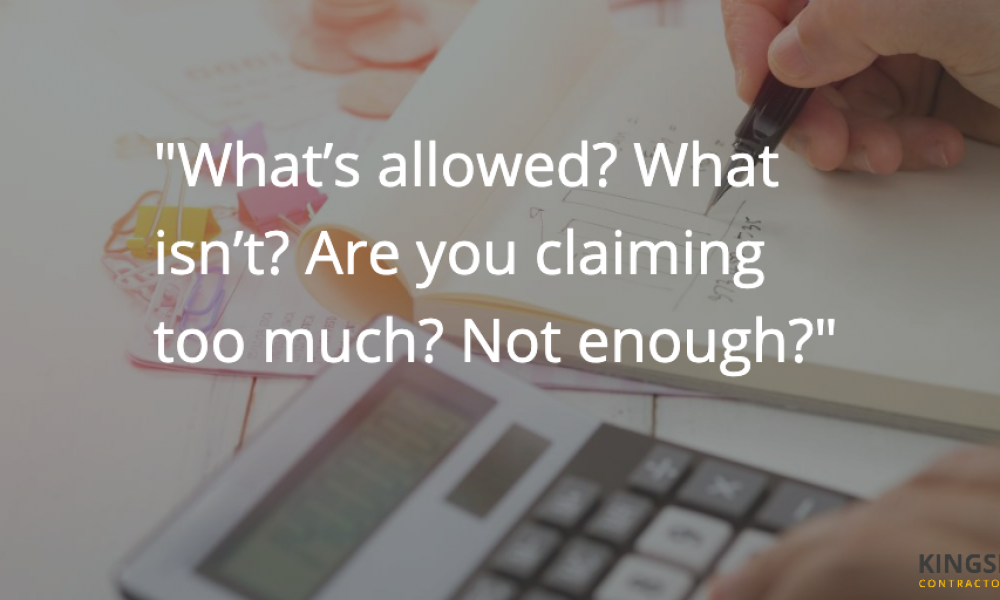Contractor, sole trader or employee: what`s the difference?
Taking the decision to go self-employed can be a difficult one. After all, there are so many variables that you…
Expenses can be the bane of a contractor or freelancer’s life. On the one hand, it’s great that you can…

Expenses can be the bane of a contractor or freelancer’s life. On the one hand, it’s great that you can claim certain things back to offset your taxes. On the other, it’s one more thing you need to keep track of.
It’s enough to send even the most conscientious contractor running for the hills. So, we’ve put together this quick guide to some of the most common queries, pointing you to the best resources.
It would take too much space to outline everything here but, as a rough guide, you can claim for:
GOV.UK provides a great breakdown of everything that is and isn’t allowed.
Simplified expenses are designed to take the hassle out of some of the more complex expense calculations, and they can be applied to vehicles, working from home and living and your business premises.
They can only be used if you operate as a sole trader rather than as a limited company.
They allow you to use flat rates for expenses claims rather than having to calculate proportions of costs. So, for instance, if you work from home you claim a flat rate based on how many hours you’ve worked, rather than having to work out your office’s share of utility bills. And, again, GOV.UK has an excellent in-depth guide.
Expenses are claimed when you complete your Self-Assessment each year. This means you need to keep track of them throughout the year which can become somewhat complicated if you let it get on top of you.
We recommend having a filing system for receipts, invoices, tickets and so on and, logging them all in your accounts at regular intervals throughout the tax year. This could be once a week, once a fortnight or once a month – whatever works well for you.
When you complete your tax return, you will be able to enter your total expenses in the form. Once this is done, they will be deducted from your turnover and you will only pay tax on what remains.
Just to ensure things aren’t too straightforward, how you claim for certain things can vary.
If you’re a sole trader and use cash basis accounting then equipment such as computers and printers can be claimed as allowable expenses. However, if you operate as a limited company and use traditional accounting, you would use capital allowances. Make sure you know what applies to you before you complete your tax return and claim.
As mentioned, insurance is classed as an allowable expense – you just need to keep your records. If you’re due for renewal or are buying for the first time, take a look at how we can help.